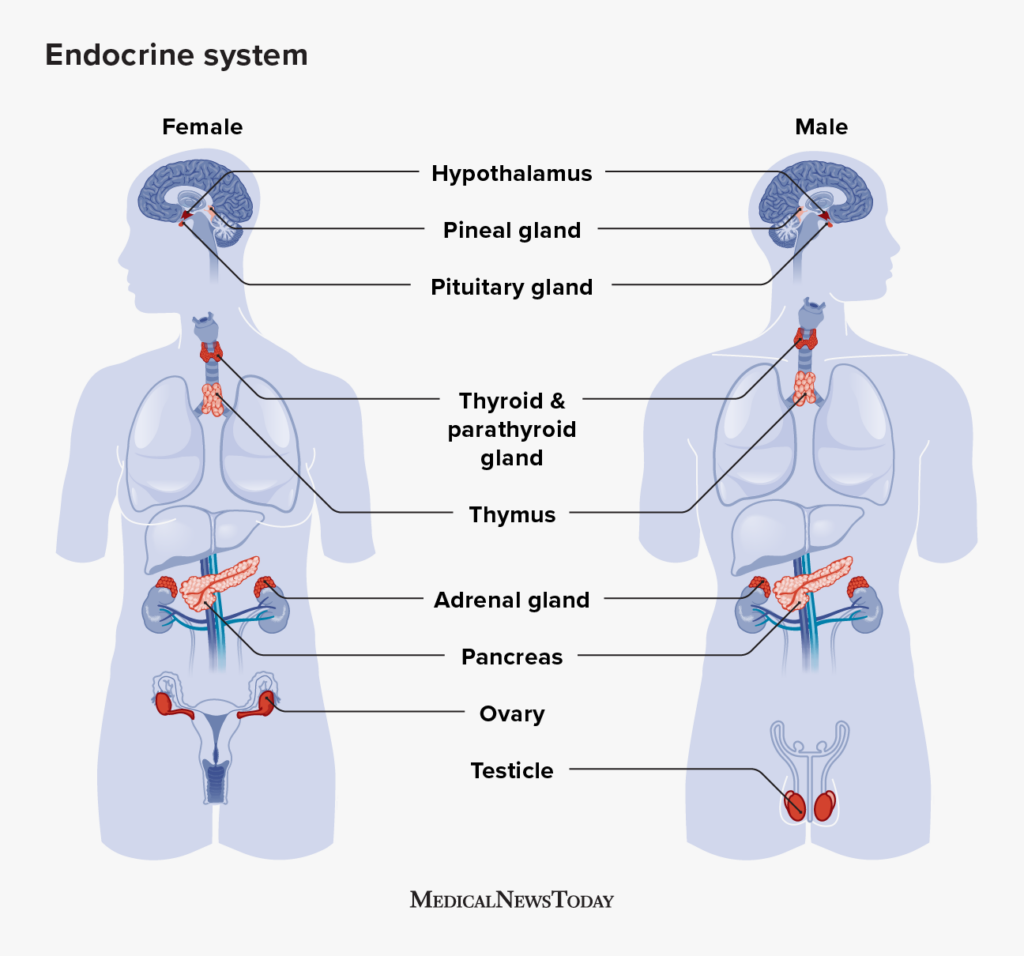Best Endocrinologist Near Me: Finding Top Medical Specialists
Wiki Article
The Science Behind Hormone Law: Insights From an Endocrinologist
The Science Behind Hormonal Agent Law: Insights From an Endocrinologist uses a thorough exploration of the elaborate procedures entailed in hormone regulation. Whether you are a medical specialist seeking a deeper understanding of endocrine feature or a specific interested in discovering regarding the science behind hormonal agent guideline, this book is an indispensable resource.Hormones and Their Functions
Hormonal agents play crucial roles in the regulation and control of different physiological procedures within the body. These chemical carriers are created by endocrine glands and are released right into the bloodstream, where they take a trip to target cells or organs to apply their impacts. The functions of hormonal agents vary and include almost every element of human physiology.One of the key functions of hormonal agents is to preserve homeostasis, which is the secure internal setting required for the body to function efficiently. As an example, insulin, a hormone created by the pancreatic, regulates blood sugar levels by advertising the uptake and storage of sugar in cells. Another hormonal agent, cortisol, helps the body react to stress by boosting blood sugar level levels and subduing the immune system.
Hormones additionally play essential duties in growth and advancement. Development hormone, generated by the pituitary gland, stimulates the growth of cells and bones, while thyroid hormones regulate metabolic process and influence the advancement of the nerves - Endocrinologist. Furthermore, reproductive hormonal agents, such as estrogen and testosterone, are in charge of the growth and maintenance of secondary sex-related attributes and the guideline of the menstruation
The Endocrine System: An Overview
Playing an essential function in the guideline and control of physiological processes, the endocrine system is a complex network of glands that produce and release hormonal agents right into the blood stream. These glands, consisting of the hypothalamus, pituitary gland, thyroid gland, adrenal glands, pancreatic, ovaries, and testes, produce hormonal agents that act as chemical messengers, affecting different physical features. The endocrine system operates in combination with the nerve system to preserve and manage homeostasis, making sure that the body's inner setting stays steady.It creates hormones that inhibit the release or promote of hormones from the pituitary gland, which in turn regulates the task of other endocrine glands. The thyroid gland, located in the neck, produces hormonal agents that control metabolism and power equilibrium.

Policy of Hormone Production
The regulation of hormone manufacturing involves an intricate interplay in between numerous glands and responses devices within the endocrine system. Hormonal agents are chemical carriers that play a critical role in keeping homeostasis and coordinating numerous physical procedures in the body. The manufacturing of hormones is snugly controlled to make sure the appropriate functioning of the endocrine system.The hypothalamus, located in the mind, works as a vital regulator of hormonal agent production. It releases hormones that stimulate or hinder the production of hormones by the pituitary gland, which is frequently described as the "master gland" of the endocrine system. The pituitary gland, consequently, generates hormones that act upon various target glands throughout the body, promoting them my site to produce and release details hormones.
Responses mechanisms likewise play a crucial role in hormonal agent law. There are two kinds of feedback systems: adverse feedback and favorable responses. Unfavorable feedback assists keep hormone levels within a slim array. When hormone levels increase over or drop below the ideal variety, the body triggers mechanisms to either reduction or rise hormonal agent production, respectively, to recover balance. Favorable responses, on the various other hand, enhances the manufacturing of hormonal agents in feedback to certain stimuli, such as childbirth.
Responses Loops in Hormonal Agent Guideline
Comments loops play an important function in the guideline of hormone production. These loops involve a collection of communications in between the endocrine glands, hormones, and target organs to maintain homeostasis in the body. There are 2 kinds of comments loops: adverse responses and favorable comments.Negative feedback is one of the sites most usual type of feedback loophole in hormonal agent law. It functions by picking up the degrees of a hormone in the blood and adjusting hormone manufacturing appropriately. When hormonal agent degrees rise above a particular limit, the hypothalamus in the mind indicates the pituitary gland to lower hormone production. This, in turn, decreases the stimulation of the target body organ, bring about a reduction in hormone secretion. Alternatively, when hormone degrees drop listed below the threshold, the hypothalamus boosts the pituitary gland to boost hormone manufacturing, restoring equilibrium.
Positive comments loops, on the various other hand, enhance hormonal agent production. This happens when a hormonal agent promotes the launch of more of the exact same hormone, leading to a fast rise in its levels. Positive responses loops are less typical in hormone law and are usually included in details physical processes, such as childbirth and lactation.
Aspects Affecting Hormonal Agent Balance
Elements affecting hormonal agent equilibrium consist of dietary choices, way of life behaviors, and ecological direct exposures. These factors can have a considerable effect on the fragile equilibrium of hormonal agents in the body, affecting various physiological procedures and total wellness.Nutritional options play a vital function in hormone policy. Taking in a balanced diet that consists of a selection of nutrients is necessary for preserving hormone balance.
Way of living behaviors, such as workout, sleep patterns, and tension management, additionally affect hormone equilibrium. Normal exercise helps manage hormonal agent levels, advertises general well-being, and reduces the threat of hormonal disorders. Appropriate sleep is crucial for hormonal agent production and regulation, as disrupted rest patterns can bring about inequalities. Additionally, persistent anxiety can dysregulate the hypothalamic-pituitary-adrenal (HPA) axis, an essential gamer in hormonal agent guideline, bring about a waterfall of hormone inequalities.

Final Thought
In conclusion, recognizing the science behind hormonal agent regulation is crucial for maintaining general health and well-being. Hormonal agents play crucial functions in various bodily features, and their manufacturing is regulated by complicated comments loopholes. Factors such as anxiety, diet regimen, and lifestyle choices can influence hormone balance. By studying and comprehending these devices, we can much better understand and manage hormone-related conditions, ultimately leading to enhanced wellness Home Page end results.The Science Behind Hormonal Agent Guideline: Insights From an Endocrinologist offers a thorough expedition of the elaborate procedures included in hormone guideline. It produces hormonal agents that promote or hinder the release of hormonal agents from the pituitary gland, which in turn manages the task of other endocrine glands. It launches hormones that boost or prevent the manufacturing of hormonal agents by the pituitary gland, which is frequently referred to as the "master gland" of the endocrine system. The pituitary gland, in turn, generates hormones that act on various target glands throughout the body, stimulating them to generate and release specific hormonal agents.
When hormone levels climb above a particular threshold, the hypothalamus in the mind indicates the pituitary gland to decrease hormonal agent manufacturing. (endocrinologist in liberty hill)
Report this wiki page